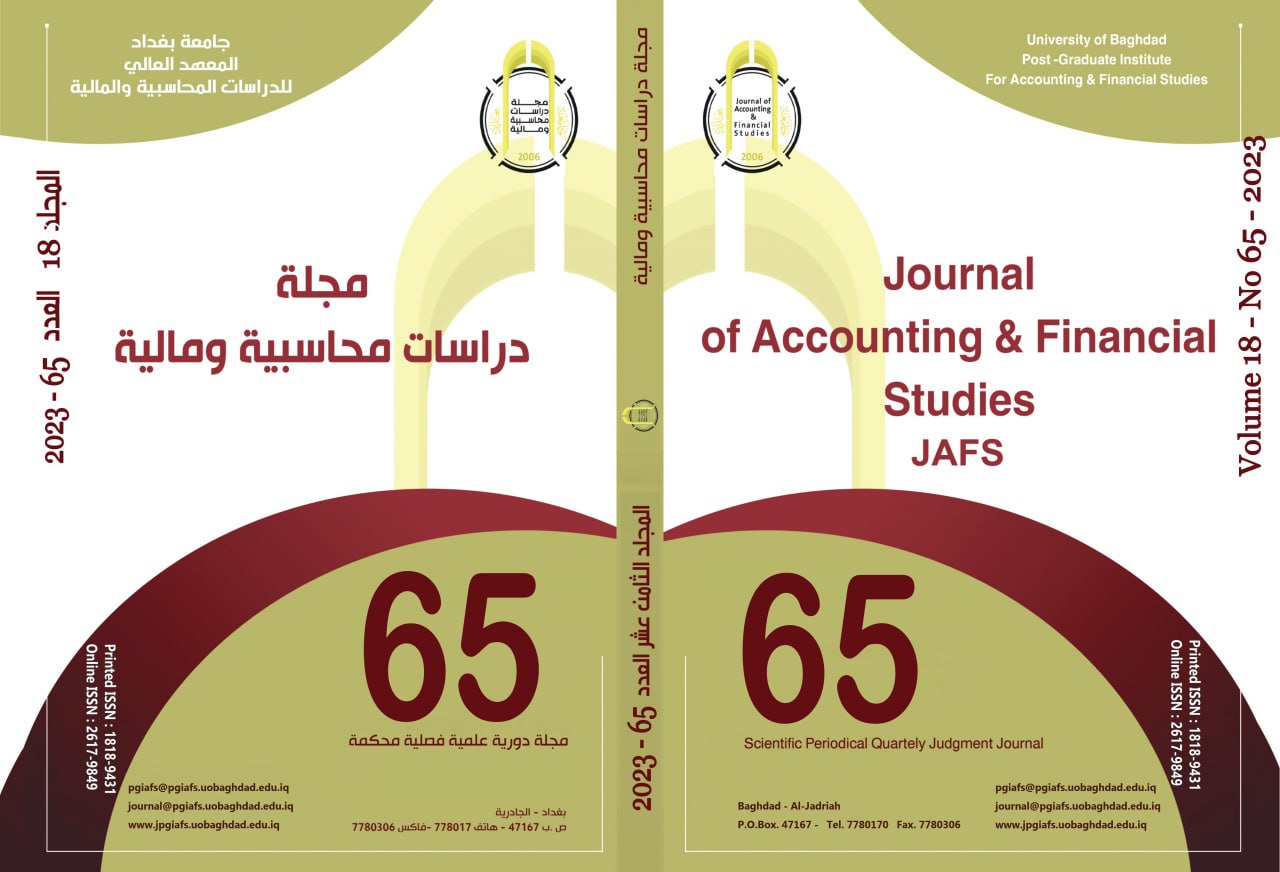مدى مساهمة وظيفة التدقيق الداخلي في تحسين الاداء الإداري
دراسة ميدانية في دائرة صحة بغداد / الرصافة
الكلمات المفتاحية:
التدقيق الداخلي، الأداء الإداريالملخص
المستخلص:
يعتبر التدقيق الداخلي صمام الأمان للإدارة العليا في جميع المؤسسات حيث انها تهدف إلى حماية الممتلكات، ورفع كفاءة وفعالية الأداء الإداري، وذلك من خلال متابعة الالتزام بالقوانين والتعليمات وتطبيق اللوائح بما يرفع من الأداء الإداري للدائرة. حيث انه من خلال المراجعة الداخلية يتم تحديد نقاط الضعف أو الاختلالات في الأداء الإداري. لتحقيق هذا الهدف، تم اعتماد المنهج الوصفي التحليلي باختيار دائرة صحة بغداد / الرصافة كعينة مجتمع لهذه الدراسة. فقد تم تصميم استبيان مؤلف من 44 فقرة للتأكد من صحة الفرضيات، وبعد توزيع الاستبيان امكن الحصول على 126 إجابة جرى تحليلها عن طريق استخدام البرنامج الإحصائي (SPSS) اصدار 25.
وقد أفادت الدراسة بكفاءة التدقيق الداخلي في دائرة صحة بغداد/الرصافة، وان ذلك لا يمنع من وجود بعض نقاط الضعف حيث يساعد التدقيق الداخلي من خلال كشف الانحرافات والاخطاء في جميع النواحي الأداء الإداري في رفع مستوى الدائرة. وقد توصلت الدراسة الى عدة الاستنتاجات واهمها يساعد التدقيق الداخلي في تحسين الأداء الإداري بمختلف المجالات، كما ويساعد في كشف الانحرافات والاخطاء في جميع النواحي الأداء الإداري.
التنزيلات
منشور
إصدار
القسم
الرخصة
يتمّ نقلُ حقوق النّشر إلى المجلّة عند إخطار الباحث بقَبول بحثه المقدّم للنّشر في المجلّة.





